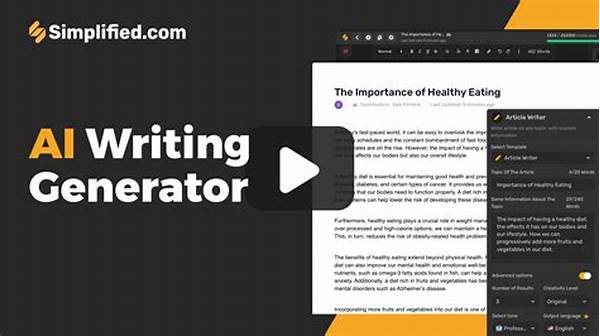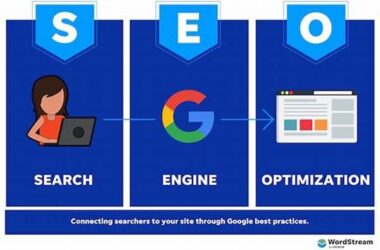- The Practical Benefits of AI in Caption Writing
- Introduction to How AI Helps Write Captions That Convert
- The Role of AI in Crafting Effective Captions
- Examples of How AI Helps Write Captions That Convert
- Discussion: The Influence of AI on Caption Writing Dynamics
- AI as a Catalyst for Change in Marketing Strategy
How AI Helps Write Captions That Convert
Read More : Best Ai Voice Tools For Podcasts In 2025
In the constantly evolving digital landscape, businesses and individuals alike are on an endless quest for engagement. Social media platforms have become significant arenas where brands establish their presence. Within this competitive environment, writing captions that not only captivate but also convert viewers into customers is essential. However, crafting such compelling captions consistently can be a daunting task. Enter Artificial Intelligence (AI), a tech-savvy assistant that offers an innovative solution to this challenge. AI is revolutionizing the way we create content by enabling marketers to generate captions that not only resonate but also drive actions. But how exactly does AI achieve this? Let’s unravel this phenomenon through a tale of technology and marketing prowess.
Imagine you are a content creator who spends countless hours brainstorming captions that align with your brand’s voice and message. You’ve crafted drafts on drafts, each with subtle differences, yet none seem to hit the mark. It’s exhausting and time-consuming, leaving you barely any energy for equally important tasks. This is where AI solutions come to play, easing the burden of content creation. Through its ability to analyze trends, understand consumer behavior, and generate creative text based on data, AI provides the tools necessary to write captions that convert casual scrollers into dedicated followers. From analyzing successful captions in similar markets to understanding the nuances of human emotion, AI learns and adapts to ensure the output meets—and even exceeds—expectations.
The allure of AI-generated captions lies not only in their efficiency but in their effectiveness. By employing machine learning algorithms, AI identifies which words, phrases, and styles captivate an audience’s attention. It doesn’t just skim the surface—it delves deep into the psyche of target demographics. The result? Captions that reflect brand identity, maintain authenticity, and speak directly to the consumer’s needs and desires. The art of persuasion becomes a science through meticulous data handling. Furthermore, AI empowers creators by offering suggestions rooted in predictive analytics, removing the guesswork and enabling a smoother creative process.
Beyond the technical capabilities, AI injects humor and relatability into captions, qualities that humans often gravitate toward. By analyzing linguistic trends, AI captures the essence of what makes language engaging and adapts it to the brand’s tone. Whether it’s through puns, jokes, or cultural references, AI-generated captions evoke emotion, promoting a narrative that is both entertaining and persuasive. This combination of creativity and strategy translates into higher engagement rates, increased conversion, and ultimately, a stronger brand presence on social media.
The Practical Benefits of AI in Caption Writing
Diving deeper into the practical benefits, how AI helps write captions that convert can be summed up in its adaptability and precision. AI tools come armed with a vast array of data-driven insights. They analyze user interactions across platforms to identify trends, predict reactions, and adapt the tone accordingly. The result is a tailored experience for each campaign, ensuring maximum effectiveness. As AI continues to evolve, its applications in content marketing do not merely augment human effort but redefine what’s possible in creating impactful and engaging digital narratives.
—
Introduction to How AI Helps Write Captions That Convert
The world of digital marketing is bustling with clever strategies aiming to capture the fleeting attention of consumers. At the heart of this battleground lies the humble caption—a string of words with the power to entice, engage, and convert viewers into loyal customers. However, the art of caption writing is no small feat. It requires an intricate balance of creativity, clarity, and persuasion. This is where AI steps in as the unsung hero, transforming the content creation landscape with its precision and proficiency. With AI by your side, every word becomes a stepping stone towards conversion.
The inception of AI as a tool for marketers stems from its ability to process and analyze large sets of data quickly and with remarkable accuracy. The initial barrier to writing captivating captions is understanding the audience and what resonates with them. Traditionally, this would require extensive market research and data analysis, which could be time-consuming and error-prone. AI expedites this process through machine learning algorithms that not only contextualize data but predict future trends. This capability provides creators with a foundation upon which to build their messaging strategies, ensuring relevance and timeliness.
But it’s not just about data. AI injects a level of creativity that amplifies human effort. It learns from successful captions, forming a repertoire of effective structures, tones, and themes. As a result, it crafts captions that are not only aligned with a brand’s voice but also innovative in their approach. Humorous, insightful, or informative—AI knows when to infuse personality into the content to better connect with the audience. It’s this strategic creativity that gives brands a competitive edge, allowing them to stand out in an oversaturated digital space.
FAQ content in this format fosters engagement by addressing direct customer concerns, creating an interactive dialogue between brand and consumer. Moreover, AI actively learns from each interaction, continuously refining caption strategies to align with evolving consumer preferences and behaviors. By maximizing engagement, AI ensures brands not only reach their target audience but compel them to take action, driving conversion rates up.
With AI, personalization reaches a new height. It allows for the crafting of bespoke experiences, honing in on individual consumer preferences. Understanding the subtleties that turn views into clicks, AI ensures content is seen by the right people at the right time. It leverages data analytics to anticipate needs, tailor messaging, and suggest improvements. This level of personalization fosters a deeper connection between brands and their audience, paving the way for trust and loyalty.
The Role of AI in Crafting Effective Captions
In the quest to decode how AI helps write captions that convert, it is essential to recognize its integration into existing marketing frameworks. AI complements human skills by providing invaluable insights and innovative solutions. The fast-paced world of social media demands agility, and AI accelerates the content creation process by offering on-the-spot suggestions and adaptations. From optimizing SEO to crafting compelling narratives, AI is the unseen force driving next-level digital marketing.
How AI Analyzes Market Trends
Understanding how AI helps write captions that convert necessitates an appreciation for its role in market analysis. Through complex data processing and natural language processing capabilities, AI dissects consumer interactions to identify emerging trends and linguistic shifts. It gives marketers a foresight that was previously thought to be the realm of speculation. AI’s ability to analyze data extends beyond numbers; it interprets subtleties in consumer feedback, providing actionable insights for content refinement.
—
Examples of How AI Helps Write Captions That Convert
Discussion: The Influence of AI on Caption Writing Dynamics
In the contemporary digital marketing landscape, the influence of AI on caption writing dynamics cannot be overstated. AI has emerged as a pivotal factor in enabling marketers to create content that resonates with audiences. By leveraging vast datasets, AI crafts captions that tap into the latest trends and consumer preferences. The discussion around how AI helps write captions that convert begins with recognizing its ability to process and interpret data. This ability transforms a simple caption into a potent tool of persuasion, guiding consumer behavior through crafted storytelling.
AI’s impact extends to the realm of creativity. It provides suggestions that keep content fresh, engaging, and relevant, saving marketers time and energy. This creative collaboration between humans and machines results in content that is not only strategic but also imbued with personality and flair. AI’s language model capabilities mean it can generate subtle nuances, puns, and variations that might take a human writer much longer to conceive.
AI as a Catalyst for Change in Marketing Strategy
When discussing AI’s role in revolutionizing caption writing, its ability to adapt strategies to specific market contexts is paramount. It enables marketers to shift from a one-size-fits-all approach to crafting personalized messages that effectively engage diverse audiences. TensorFlow, a subset of AI technologies, is used to predict the most effective posts and hashtags. AI analyzes what works best in various segments and suggests strategic shifts to optimize engagement and conversion, proving indispensable.
As brands become more dependent on digital marketing for their customer engagement strategies, AI’s role continues to grow in importance. The dynamic nature of social media requires marketers to remain agile and responsive, a need seamlessly met by AI’s analytical and creative capabilities. With AI, marketers are empowered to produce captions that not only engage but convert, creating a direct link to enhanced consumer loyalty and a stronger market presence.
In summary, AI is redefining how we approach caption writing by providing data-driven insights, creative inspiration, and an unparalleled level of personalization. As businesses continue to explore how AI helps write captions that convert, it is clear that the future of content marketing lies at the intersection of technology and human creativity. Embracing this synergy will be key to thriving in the ever-evolving digital landscape.



